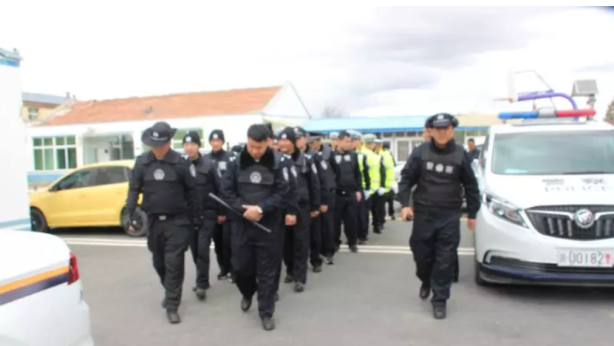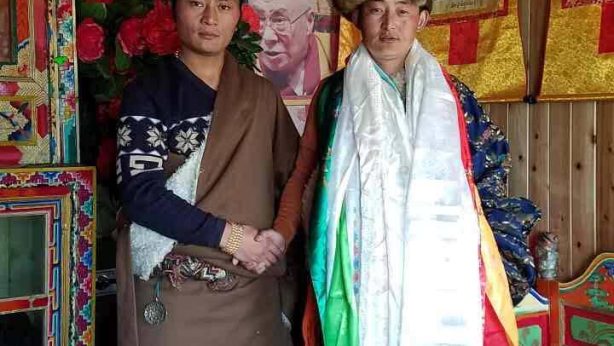TCHRD calls for immediate, unconditional release of chinese human rights lawyers
Against the backdrop of the legal reforms that took place in 2014 aiming to make courts less corrupt, there has been an unprecedented crackdown on human rights lawyers in the People’s Republic of China (PRC). Approximately 120 lawyers, and more than 50 support staff, family members and activists, have been rounded up and arrested across the country since the morning of 9 July 2015.
This recent crackdown has been remarkable in its speed, geographic extent and the number of people targeted, which include nearly all of the PRC’s civil rights lawyers. The US State Department has condemned these detentions, noting with alarm that “Chinese public security forces have systematically detained individuals who share the common attribute of peacefully defending the rights of others, including those who lawfully challenge official policies”.
These human rights lawyers were fighting for increased rule of law in the PRC, which is in line with Chinese president Xi Jinping’s commitment to the same goal, repeatedly made since he took office in 2012. William Nee, China Researcher at Amnesty International, states that “this coordinated attack on lawyers makes a mockery of President Xi Jinping’s claims to promote the rule of law”.
In a society where the rule of law reigns, citizens are able to fully exercise their human rights without fear of being victim of arbitrary uses of power. The United Nations General Assembly (UNGA) Resolution on Human Rights, Democracy and the Rule of Law “urges States to acknowledge publicly the important contribution of human rights defenders to the promotion of human rights, democracy and the rule of law, and to create a safe and enabling environment for their work”. It also highlights that is the responsibility of the State to create an enabling environment in which the rule of law is able to flourish, and therefore allow its citizens to be able to fully exercise their human rights without fear of arbitrary punishment.
The current Chinese legal and political systems do not have all of the elements necessary for rule of law. In particular, there is a lack of judicial independence, lawyers are not free to take politically sensitive cases, and the Communist Party of China (CPC) is seen to be above the law. Chinese lawyers who attempt to uphold the rule of law especially those who defend Tibetans are in danger of being arbitrarily arrested, and regularly lose their licenses. These lawyers are also regularly convicted for crimes for which little supporting evidence is provided at trial. They have faced many challenges, including disbarment or suspension, violence, threats, surveillance, arbitrary detention, and prosecution. They risk their careers and wellbeing to help Tibetans defend themselves.
While some Chinese citizens’ cases are deemed to be politically sensitive, all Tibetan cases are seen as controversial. For example, following the 2008 Tibetan uprising, 21 Chinese lawyers signed a document encouraging security forces to deal with the situation within the confines of the law. Local officials immediately informed all of these lawyers that they were not allowed to intervene in any of the Tibetan cases.
According to Teng Biao, the founder of the Open Constitution Initiative (OCI) that advocated for the rule of law in the PRC, the Chinese authorities have arrested “more than 300 human rights defenders and intellectuals, such as Pu Zhiqiang, Tang Jingling, and Ilham Tohti”. Officials have also destroyed many Christian churches, have cracked down on the Internet, and have published a series of articles against universal values such as human rights, civil liberties, constitutionalism, judicial independence and other values enshrined in international law but often criticized in the PRC as Western. With such actions, Teng Biao, who lives in exile in Hong Kong, argues that the PRC is not able to have meaningful reform of the legal system.
Due to this difficult system in which they are working, lawyers who take on controversial cases “faced harassment and threats from the authorities and, in some cases, the loss of professional licenses, severely curtailing people’s access to justice”. It is becoming more common for Chinese lawyers to be silenced by having their licenses revoked, being placed under surveillance, harassed, or actually detained themselves and charged with vaguely worded offences.
With the new National Security Law, [4] which enables the government to define almost anything as a threat to national security, finding a good lawyer in the PRC may become significantly more difficult in the near future.
TCHRD expresses deep concern over the health and wellbeing of Chinese human rights lawyers who are imprisoned, charged, arrested, or temporarily detained or disappeared simply for exercising their human rights and for defending other people’s human rights. TCHRD calls on the Chinese government to immediately and unconditionally release all lawyers who are unjustly punished for exercising their human rights. Meanwhile the Chinese government is fully responsible for the physical and psychological integrity of Chinese human rights lawyers who continue to remain in government custody or under surveillance. Lawyers are crucial for the citizens to defend themselves and demand justice and accountability from the government. By locking up the lawyers, the PRC is sending a conflicting and wrong message. The PRC’s hostility towards its own lawyers will only cost its own stability, a goal the PRC aims to achieve by using force.
Endnotes
1. Rule of Law in China, a Country Which Locks Up Its Lawyers, BBC, 13 July 2015, available at: http://www.bbc.com/news/world-asia-china-33502955.
Ibid.
2. United Nations General Assembly (UNGA), Resolution on Human Rights, Democracy and the Rule of Law, 19 April 2012, A/HRC/RES/19/36, available at: daccess-dds-ny.un.org/…/RE…/GEN/G12/131/66/PDF/G1213166.pdf….
3. “In terms of human rights, in terms of every aspect of the most basic rights, Tibetans suffer from more obvious and more severe oppression than Chinese… For Chinese, cases such as the ones of Xu Zhiyong and Liu Xiaobo are considered sensitive. But for Tibetans, all cases are sensitive.” Ibid.
4. China’s new National Security Law a serious setback to human rights in Tibet, available at: https://tchrd.org/chinas-new-national-security-law-a-se…/
4. China’s Unstoppable Lawyers: An Interview with Teng Biao, The New York Review of Books, 19 Oct. 2014, available at: http://www.nybooks.com/…/oct/19/china-rights-lawyers-teng-…/.
Ibid.
Ibid.
5. Annual Report: China 2013, Amnesty International, 23 May 2013, available at: http://www.amnestyusa.org/…/repor…/annual-report-china-2013….
Ibid.
6. New Accounts Detail Rights Lawyer Detentions, Chinese Human Rights Defenders, available at http://chinadigitaltimes.net/…/new-accounts-detail-detenti…/


